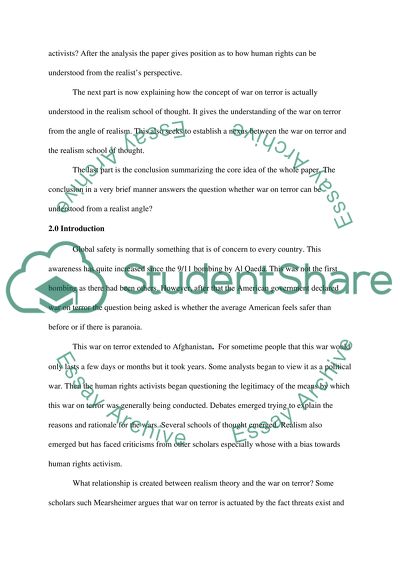Cite this document
(“Can the war on terror be understood in terms of realism Essay”, n.d.)
Retrieved from https://studentshare.org/history/1394309-can-the-war-on-terror-be-understood-in-terms-of
Retrieved from https://studentshare.org/history/1394309-can-the-war-on-terror-be-understood-in-terms-of
(Can the War on Terror Be Understood in Terms of Realism Essay)
https://studentshare.org/history/1394309-can-the-war-on-terror-be-understood-in-terms-of.
https://studentshare.org/history/1394309-can-the-war-on-terror-be-understood-in-terms-of.
“Can the War on Terror Be Understood in Terms of Realism Essay”, n.d. https://studentshare.org/history/1394309-can-the-war-on-terror-be-understood-in-terms-of.


